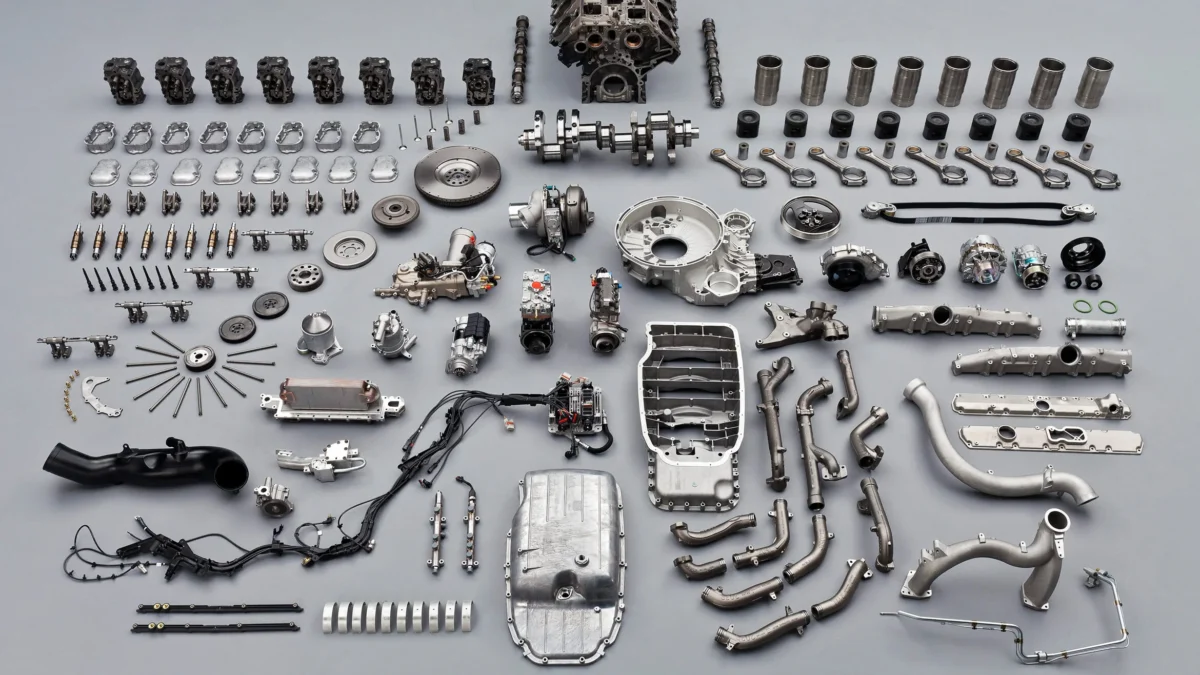Diesel engines are hard at work in trucks, fleets, and heavy equipment. Part failure may make downtime very expensive. Stocking vital Diesel Motor Parts components saves time and avoids breakdowns. Wise operators understand that preparation is the key to smooth operations.
Why Stocking Spare Parts Matters
Engines do not wait for the right moment to fail. Problems tend to present themselves at the most inopportune moment. A minor component failure can put a car or a machine out of commission for days. Keeping the appropriate parts means that repairs occur quickly, reducing delays and increasing productivity for the operators.
Filters for Clean Operation
One of the most important diesel components is the filters. Engines need clean fuel, air, and oil to operate effectively.
- Fuel filters safeguard injectors against dirt and water contamination.
- Air filters make sure that dust and debris do not harm engine cylinders.
- Lubrication systems are maintained clean and free of harmful particles by oil filters.
Having additional filters will also mean that maintenance never has to be postponed.
Belts and Hoses
Belts and hoses deteriorate over time, with heat, and with use. A broken belt can shut an engine off in a flash, and broken hoses can cause a loss of coolant or overheating. Keeping additional belts and hoses will minimize the chances of breakdowns on the road. Replacements are cheap and save hours of downtime.
Gaskets and Seals
Gaskets and seals are not that big, but they play a crucial role in avoiding leaks. A broken gasket may result in the leakage of oil or coolant. The issue causes overheating or engine damage when unchecked. Modern engines frequently use multi-layer steel gaskets to provide durability. Having spares means that minor yet critical problems are fixed fast.
Injectors and Fuel System Components
A diesel engine is all about the fuel system. Fuel injectors, pumps, and other associated components should be accurate. A defective injector may lead to loss of power, low mileage, and misfiring of the engine. It is better to have a spare injector or pump so that repairs can be done faster. This is particularly significant to fleets that cannot afford downtime.
Sensors and Electrical Parts
Modern diesel engines are highly reliant on electronic sensors. These parts monitor temperature, pressure, and emissions. A sensor failure may activate warning lights and slow down performance. Common sensors, including oxygen or pressure sensors, can be stocked to prevent long waits. Electrical fuses and connectors are also worth having in-store.
Cooling System Parts
Engines produce a lot of heat. In the absence of an efficient cooling system, overheating will be a severe threat. Critical components are thermostats, water pumps, and radiators. Operators should maintain additional coolant and thermostats. A small investment in these parts prevents costly engine failures.
Turbochargers and Related Components
Turbochargers enhance the power and efficiency of many diesel engines. However, they may fail because of wear, oil problems, or heat damage. Small operators may not always need a backup turbocharger. However, in the case of large fleets, one or two can be stocked to cut down on significant downtime.
Exhaust and Emission Parts
Diesel engines are under stringent emission regulations. Components such as diesel particulate filters and exhaust sensors are important. Failure may lead to loss of performance or even inspection failure. Having simple exhaust parts, particularly those used by fleets, prevents unexpected compliance issues. The operators should also keep clamps and small exhaust components to make quick repairs.
Starter Motors and Alternators
A car will not move without starting. After years of service, starters and alternators tend to fail. Keeping these parts in stock makes vehicles reliable. Spare batteries and charging cables are also needed in emergencies.
Fluids and Additives
Diesel engines do not use only solid parts. Vital fluids must be kept at hand: engine oil, coolant, transmission fluid, and diesel exhaust fluid. Fuel additives may enhance performance and eliminate gelling in cold weather. The availability of these supplies prevents delays when it comes to maintenance or seasonal shifts.
Tools and Small Essentials
Along with major parts, operators should stock small but vital items. Nuts, bolts, clamps, and washers are usually lost in the process of repair. Stocking up helps to avoid going to the store. A simple set of tools, spares, and fluids can make a long job a short fix.
Constructing a Spare Parts Checklist.
Operators can make stocking easier by creating a checklist. This list must be in line with the kind of engine and equipment in use. Reading it frequently ensures that you do not forget anything. In the case of fleets, having a manager to monitor spare parts will keep the fleet organized. The checklist is also useful for ordering online or with suppliers.
Conclusion
As an operator, it is prudent to keep the key diesel motor parts in stock. There should always be filters, belts, gaskets, injectors, and cooling parts. Storing fluids, small tools, and common sensors will guarantee quick fixes. Preparation minimizes downtime, enhances reliability, and keeps engines on their toes. To operators, the difference is in the availability of the right parts.

